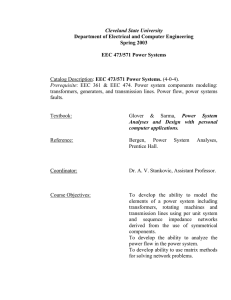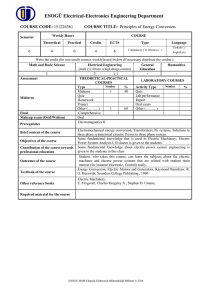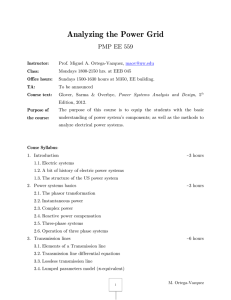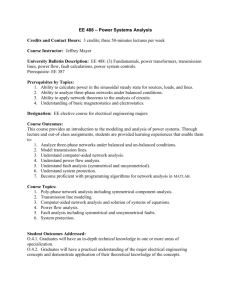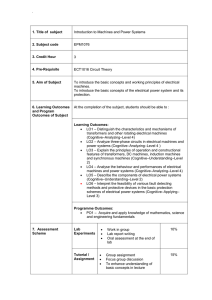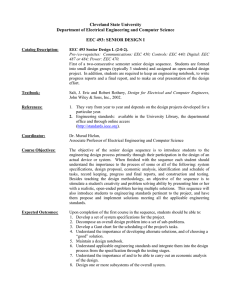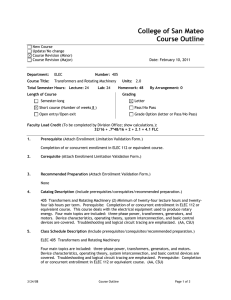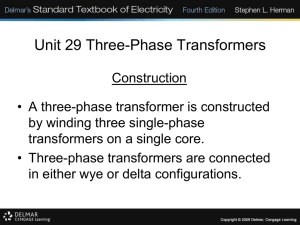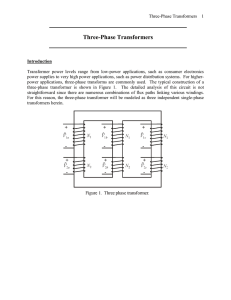Cleveland State University Department of Electrical Engineering and Computer Science
advertisement
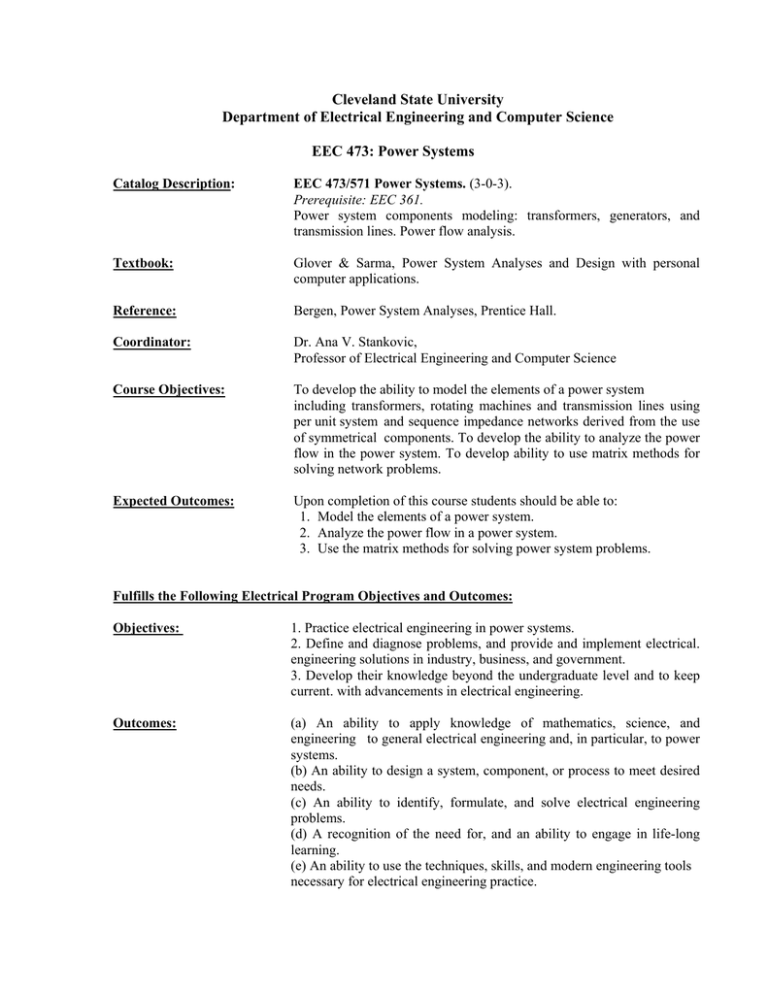
Cleveland State University Department of Electrical Engineering and Computer Science EEC 473: Power Systems Catalog Description: EEC 473/571 Power Systems. (3-0-3). Prerequisite: EEC 361. Power system components modeling: transformers, generators, and transmission lines. Power flow analysis. Textbook: Glover & Sarma, Power System Analyses and Design with personal computer applications. Reference: Bergen, Power System Analyses, Prentice Hall. Coordinator: Dr. Ana V. Stankovic, Professor of Electrical Engineering and Computer Science Course Objectives: To develop the ability to model the elements of a power system including transformers, rotating machines and transmission lines using per unit system and sequence impedance networks derived from the use of symmetrical components. To develop the ability to analyze the power flow in the power system. To develop ability to use matrix methods for solving network problems. Expected Outcomes: Upon completion of this course students should be able to: 1. Model the elements of a power system. 2. Analyze the power flow in a power system. 3. Use the matrix methods for solving power system problems. Fulfills the Following Electrical Program Objectives and Outcomes: Objectives: 1. Practice electrical engineering in power systems. 2. Define and diagnose problems, and provide and implement electrical. engineering solutions in industry, business, and government. 3. Develop their knowledge beyond the undergraduate level and to keep current. with advancements in electrical engineering. Outcomes: (a) An ability to apply knowledge of mathematics, science, and engineering to general electrical engineering and, in particular, to power systems. (b) An ability to design a system, component, or process to meet desired needs. (c) An ability to identify, formulate, and solve electrical engineering problems. (d) A recognition of the need for, and an ability to engage in life-long learning. (e) An ability to use the techniques, skills, and modern engineering tools necessary for electrical engineering practice. Prerequisite by Topics: 1. Three-phase circuits. 2. Electromagnetic field theory. 3. Matrix methods. Topics: 1. An Overview 2. Three-phase power, power factor correction and network equations; Symmetrical components 3. Power Transformers, Per-unit system 4. Midterm and discussions 4 8 3 5. Transmission Line parameters 8 6. Transmission Lines: Steady State Operation 8 7. Power Flow 8 8. Field Trips 3 Total 3 45 Projects: Term project, approved by instructor. Student submits a written report on the project. Grading: Midterm - 35% Final – 45% Homework – 10% Project – 10% Homework: Has to be turned in on time. Exam Format: Open Book Computer Usage: Software: Easy Power Prepared by: Dr. Ana V. Stankovic Date: 08 20 2013
